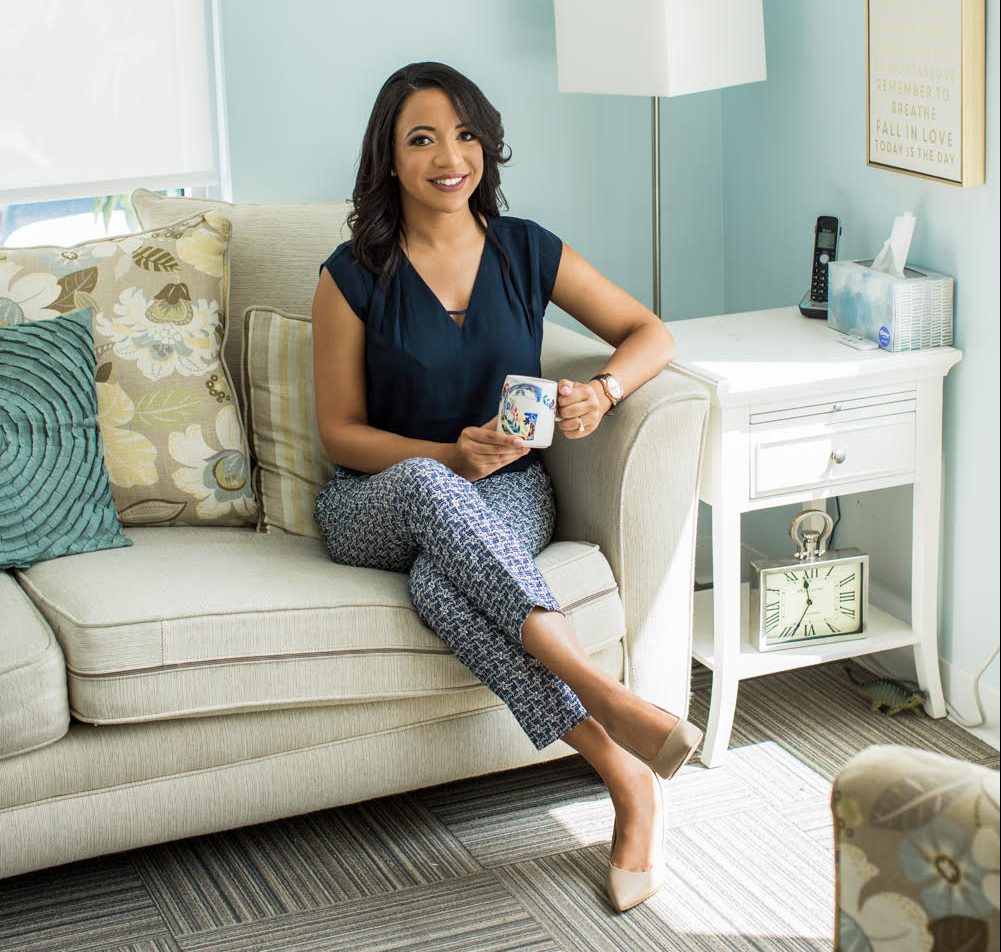Monica Snyder used to see patients in her office at Wellspring Counseling, but due to the COVID-19 pandemic, she has been consulting with them through a program called telehealth on her computer screen.
“There is an exhaustion in doing a job that is supposed to be with people, and not getting to be with them,” she states. “It’s really hard.”
For the past three months, we have been living in a state of uncertainty due to the ever-changing COVID-19 pandemic. The changes that came with this pandemic have led to an overwhelming rise in mental health cases.
(For part 1 of this series, click here.)
“Clients have come back that haven’t been needing counseling in a while,” states Snyder.
She has seen an increase in cases of trauma and posttraumatic stress disorder due to the triggers brought on by this pandemic.
Snyder has worked at Wellspring, a non-profit organization, for seven years as the clinical director. She has a Master’s degree in marriage and family therapy from Richmond University.
She has had to, “learn to balance work and home life and has had some ups and downs when working from home.”
Wellspring has been offering COVID-19 sessions, which are focused on individuals’ triggers and concerns.
“We did a survey with our clients and the statistics that came back showed that all of our clients stayed the same or have gotten better,” according to Snyder.
Though online therapy has proven effective, she states that, “We want to see our clients in person, but we also recognize that we must make sure they are safe.”
Another mental health counselor offering online sessions to her patients is Genesis Games from the South Miami Psychology Group.
According to Games, there is an increase in, “health-related anxiety and a lot of financial concern for the future.”

Games has also been seeing an increase in obsessive-compulsive disorder. These patients learn to cope by understanding what’s rational and functional.
Games has been in the field for seven years and has a Master’s degree in mental health counseling from the University of Central Florida.
“Online therapy is wonderful and beneficial in many ways and allows me as a therapist to meet clients in their environment,” she states, but she also believes that, “nothing is better than face-to-face therapy.”
Though many have been switching to online, one doctor has been keeping in-person visits during the pandemic.
Dr. James Huff is a therapist based in Miami who has 40 years in the field and a PhD in Psychology from Purdue University.
Most of his patients are long-term and he states they have, “started to feel the effects of having things they’ve developed over the years to keep their mood good, disappear.”
“The virus has really disrupted everyone’s routines and has led to a huge increase in anxiety and depression due to uncertainty of the future,” states Huff.
He takes care to ensure the safety of his clients while offering face-to-face therapy he “believes is more effective than online therapy.”
This pandemic has brought worries and fears, according to Huff. “Whether they’re a patient of mine or not, I think the pandemic is affecting everyone the same,” he says. “But how you cope with it is the issue.”
He shares his own personal coping mechanisms, which are to have lunch once a week with friends and to exercise.
Mental health is just as important as physical health and a topic that many should be talking about through this pandemic.
“We’re meant to be a community and we’re meant to be together,” states Snyder.
Correction: An earlier version of this story incorrectly identified Genesis Games. She is a licensed mental health counselor.
































